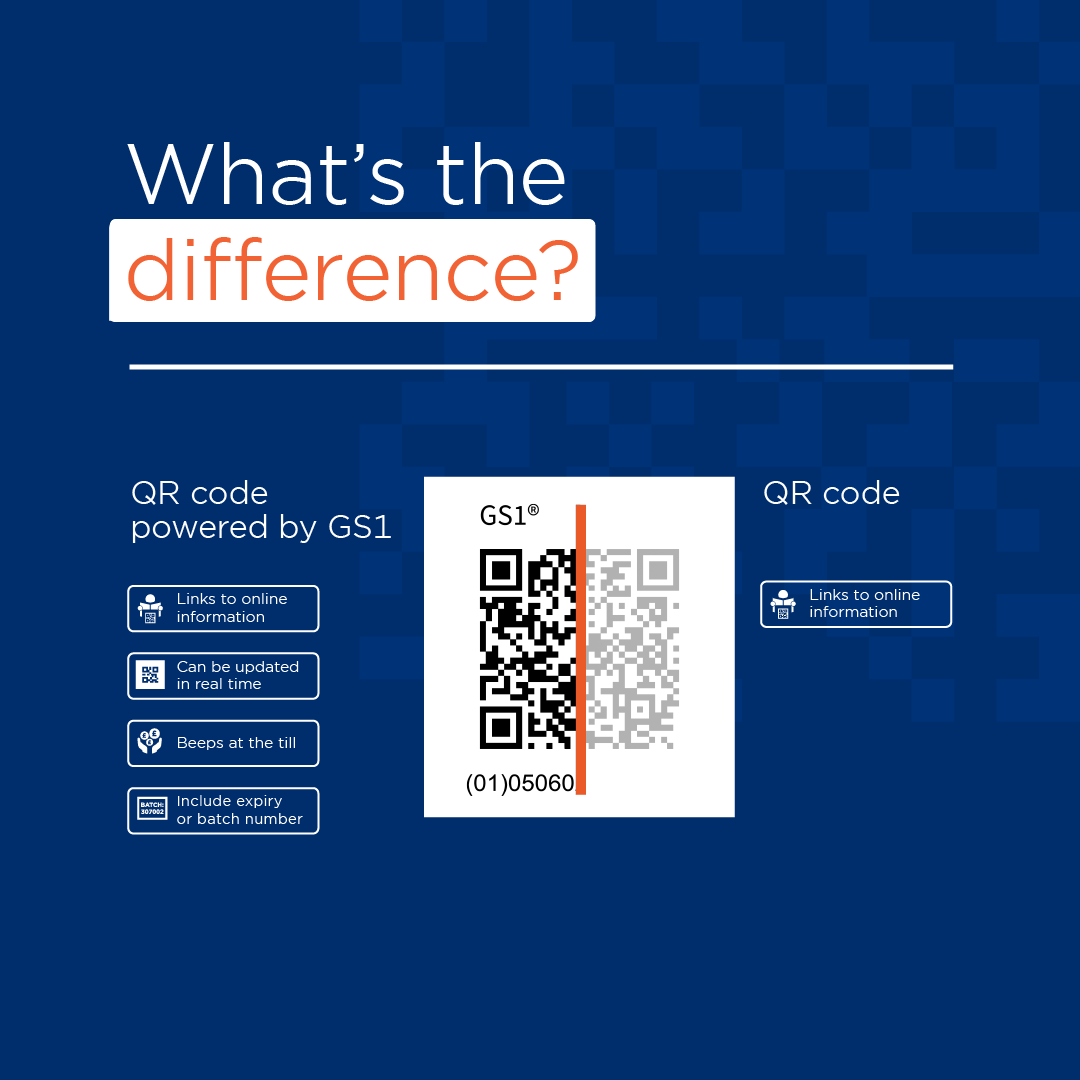Where the regular QR code refers to only one web page, QR codes powered by GS1 makes it possible to dynamically link to multiple web pages or online databases with the GS1 Digital Link.
The regular QR code cannot be scanned at retailers' checkout because it only contains a URL. QR codes powered by GS1 also include a URL with a GTIN, which makes it possible to 'beep' at the till. In addition, it can also include the expiration date, batch/lot number and the serial number.
QR codes powered by GS1 is therefore not only an upgrade of the regular QR code, but also of the barcode. As a result, only one code will soon be needed on a package in retail. With the QR code powered by GS1, everything is possible and all with a single scan.


QR code: the basics
A QR code (Quick Response code) is a two-dimensional code that can contain information such as a URL and contact information.
The main feature of a regular QR code is that consumers can scan it with their smartphones to access information, such as product details or a promotion.
QR codes powered by GS1 is a QR code with a clever feature in it: GS1 Digital Link. This allows the product to be linked to multiple online sources with enriched, real-time content.
One smarter barcode, many possibilities
Info can be accessed through a phone camera without having to download an app.
Provides instant access to essential information.
Can link to multiple pieces of online content (e.g. product details, user manuals, and promotional content).
Information can be updated instantly.
Even after the QR is printed it can be redirected to different information.
Ensures customers always have the most current details.
Contains GTIN so can scanned at the point of sale.
Future proofing for Ambition 2027.
Can include offline information like expiry dates and batch numbers.
Unlocking use cases like traceability, food waste and safety.
The QR code powered by GS1 looks the same as the regular QR code. Small in size and with built-in error correction, making them easy to scan even if the code is damaged.
